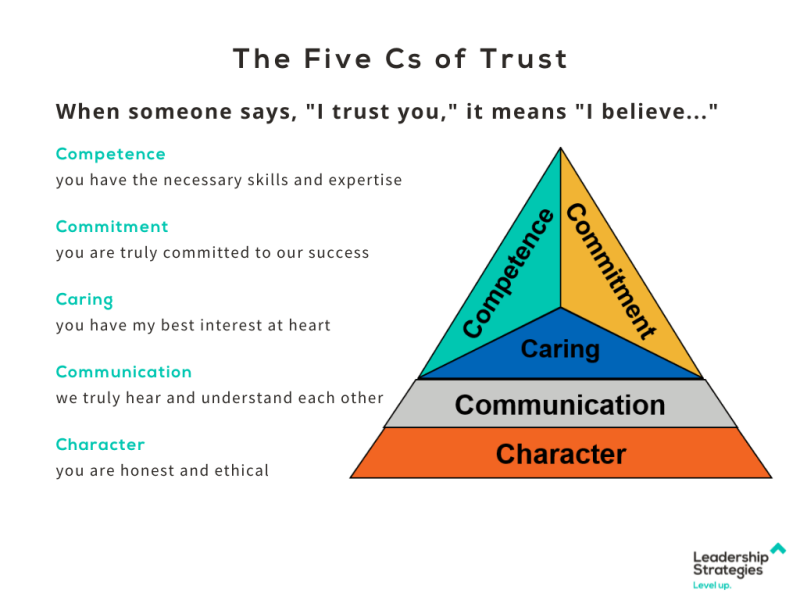I have had opportunities to ask a number of people in coaching sessions: « What are conditions for you to trust someone else and to be trusted » ? And their answers, are very frequently around « I trust people who do what they say and say what they do ». They link trust to reliability. I trust someone who I can rely on to be aligned between their actions and their expressed intentions. I assume this is one ingredient of trust. However, if we consider that trust is essentially about human connections, it calls for digging a bit deeper.
I have gone through some articles and podcasts on the subject.
In a « Culture First » podcast, the famous therapist Esther Perel is asked about trust and reminds us that we cannot talk about « trust » without talking about relational intelligence: How do we connect? How do we establish trust? How do we enter in or avoid conflict?

I have found very interesting elements in a sciencedirect article called« Trust and Conflict Resolution: Relationship Building for Learning ». The objective of the research paper was to investigate conflict resolution in the classroom. The article refers to research on the theme of trust. Some words stand out: vulnerability, dependence, security and respect.
- Trust has been described “as the willingness to be vulnerable under conditions of risk and interdependence” (Rousseau, Sitkin, Burt, & Camerer, 1998). It has also been described as positive expectations based on the behavior of another, under conditions of vulnerability and dependence (Hosmer, 1995).
- It is also closely tied up with conflict resolution: Trust building occurs with positive conflict resolution which enhances the relationship; “When you are able to resolve conflicts in a relationship, it builds trust” (Segal & Smith, 2014). Conflicts themselves often arise from, “a lack of understanding about different needs” but the resolutions usually require feelings of security and respect (Segal & Smith, 2014).
Pat Sweeney’s leadership research about trust being essential to effective leadership, refers to the 3Cs: Competence, Character and Caring. He designed a study that allowed him to conduct research on trust among soldiers engaged in combat. This was also completed in a 5C approach that add, depending on the source, Communication and Commitment to the triangle.
The "Leadership Strategies" highlights that
when someone says « I trust you », they say « I believe »:
- You have the necessary skills (Competence)
- I see you as honest and ethical (Character)
- You have my best interest at heart (Caring)
- We truly hear and understand each other (Communication)
- You are truly committed to our success (Commitment)
You can read more in this Leadership strategies article: https://www.leadstrat.com/tuesdays-master-facilitation-tip-the-5-cs-of-trust/
They also give useful tips to hold trust discussions.

Coming back to my recent experience. I think part of what may contribute to the distrust is a feeling of avoidance or indifference. It relates to « Caring » to some extent but not only and it comes as harder to unmingle.
In his article « The Avoidant Contempt: How Indifference Impacts the Workplace and Personal Relationships » Paul McCullough describes very well that « contemptuous avoidance » and writes that « it’s not just about ignoring someone; It is a posture that communicates disinterest and indifference ». He details the different types of avoidance (ghosting, ghost lighting, superficial agreement, benching etc)
All this is reading and writing gives me more courage to step back and to question my own ability to build trust and also to take action, starting the conversation with « In order for our relationship to be as effective as possible, I want to be able to trust you and to feel trusted ».
I would love to get your insights of what are your experiences and how you see ingredients of trust.
#coaching #trust #humanconnections
Ajouter un commentaire
Commentaires